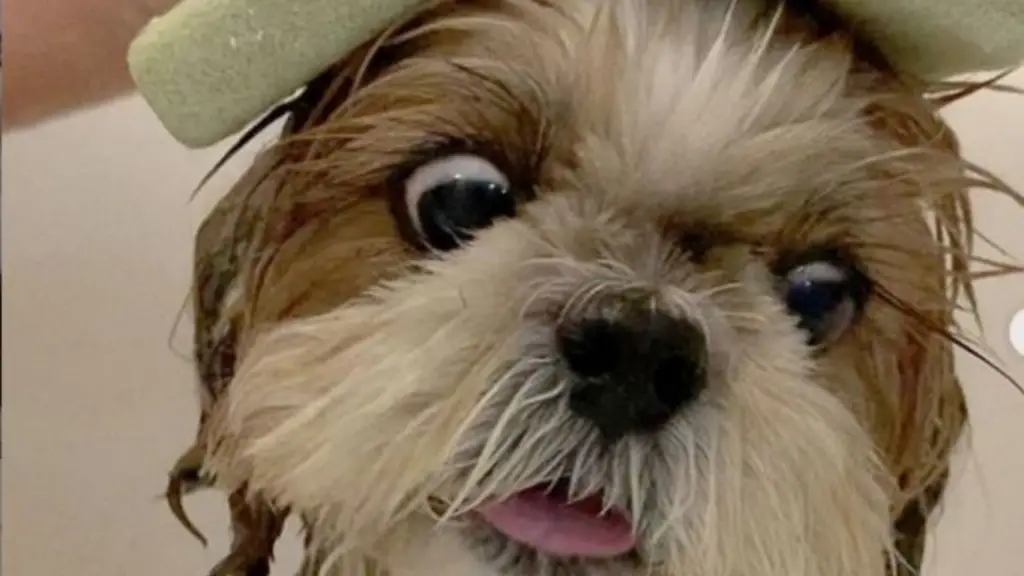
Shih Tzus are beloved for their affectionate nature and distinctive appearance, particularly their luxurious coats. However, maintaining a Shih Tzu’s coat is more than just a cosmetic concern—it’s a crucial aspect of their overall health and well-being. Grooming plays a vital role in preventing health issues, ensuring comfort, and enhancing the bond between you and your pet. This blog post delves deep into the connection between Shih Tzu grooming and health, exploring why regular grooming is essential, what it entails, and how it directly impacts your Shih Tzu’s quality of life.
Understanding the Shih Tzu Coat: A Unique Grooming Challenge
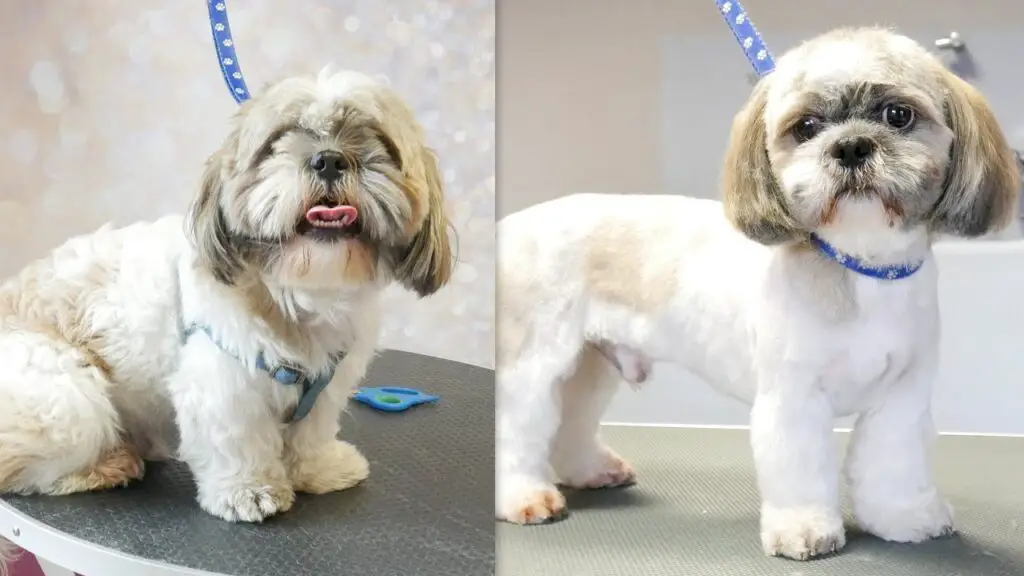
The Double-Coated Dilemma
Shih Tzus are known for their double-coated fur, consisting of a dense undercoat and a softer, longer topcoat. This double coat provides insulation and protection, but it also requires diligent care to prevent matting and tangling. The undercoat can trap loose hair and debris, leading to discomfort and potential skin issues if not properly maintained. Regular brushing and grooming are essential to keep both layers of the coat in good condition, allowing your Shih Tzu to remain comfortable and healthy.
The Role of Grooming in Skin Health
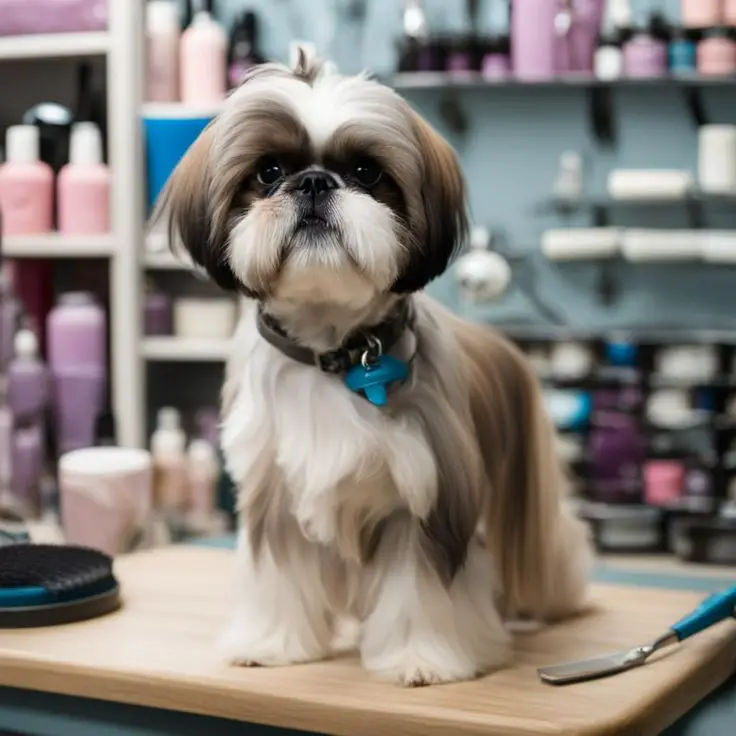
Grooming is not just about keeping your Shih Tzu’s coat looking good; it’s also crucial for maintaining healthy skin. Regular brushing helps distribute natural oils produced by the skin, which keeps the coat shiny and the skin moisturized. Without regular grooming, these oils can build up and lead to skin irritation, dryness, and even infections. Additionally, grooming allows you to inspect your Shih Tzu’s skin for any signs of parasites, infections, or abnormalities, ensuring that any issues are caught and addressed early.
The Impact of Neglecting Grooming
Neglecting grooming can have serious consequences for your Shih Tzu’s health. Without regular brushing, the coat can become matted, leading to skin infections and discomfort. Mats can also pull on the skin, causing pain and even sores. Furthermore, a poorly maintained coat can trap moisture and debris, creating an environment for bacteria and parasites to thrive. Regular grooming is essential to prevent these issues and ensure that your Shih Tzu remains healthy and comfortable.
The Importance of Regular Brushing: Preventing Matting and Promoting Comfort
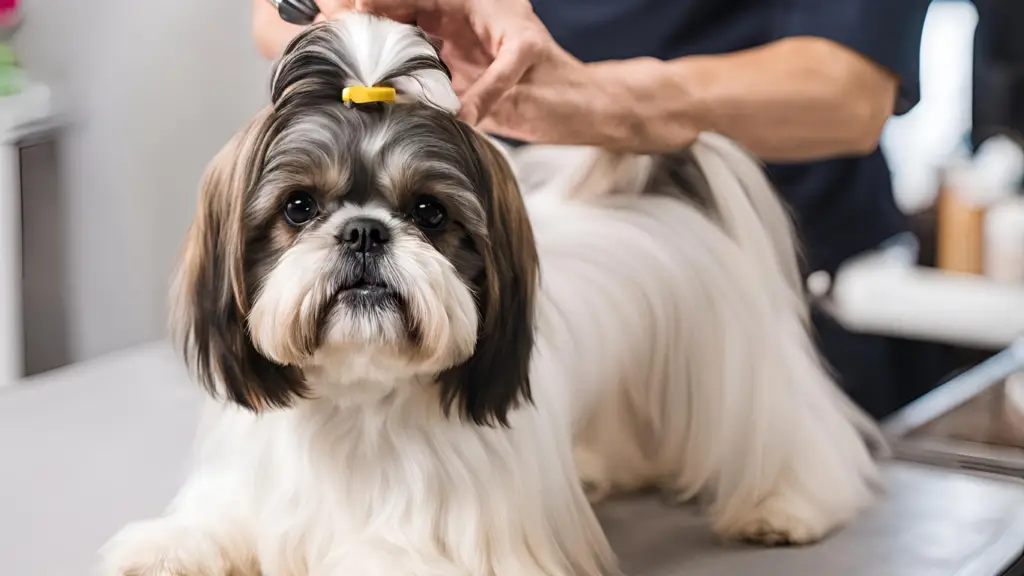
How Often Should You Brush Your Shih Tzu?
The frequency of brushing depends on your Shih Tzu’s coat length and condition. For Shih Tzus with longer coats, daily brushing is recommended to prevent tangles and mats from forming. For those with shorter, trimmed coats, brushing every few days may be sufficient. However, even with shorter coats, regular brushing is essential to remove loose hair, dirt, and debris, and to keep the skin healthy.
Techniques for Effective Brushing
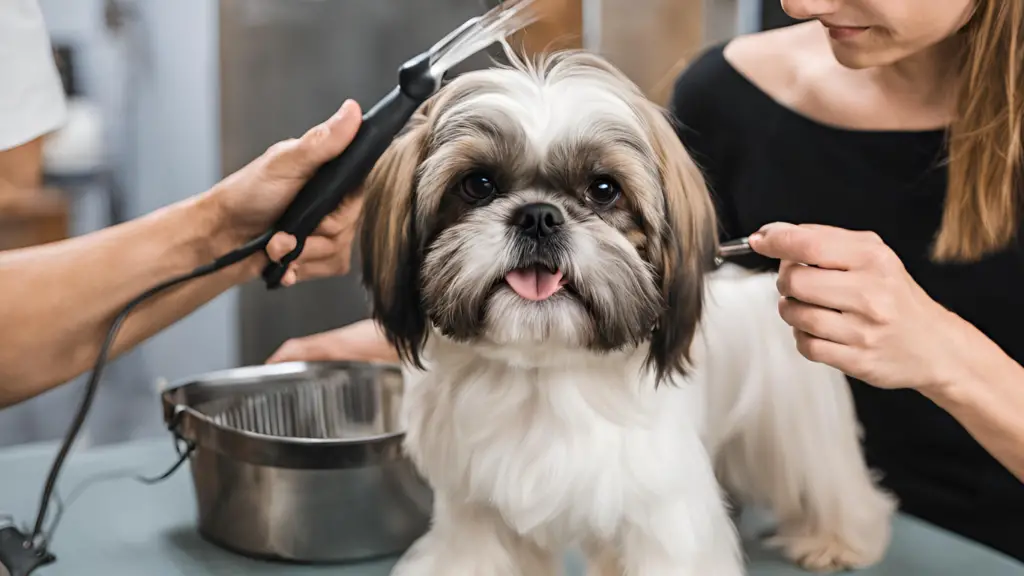
When brushing your Shih Tzu, it’s important to use the right tools and techniques to avoid causing discomfort or damage to the coat. A slicker brush is ideal for removing tangles and loose hair, while a metal comb can help with finer details and ensuring that no mats are missed. Start brushing at the base of the hair, close to the skin, and work your way up to the ends. Be gentle and take your time, especially when dealing with any tangles or mats, to avoid causing pain or stress to your Shih Tzu.
The Benefits of Regular Brushing
Regular brushing provides numerous benefits for your Shih Tzu’s health and comfort. It helps prevent matting, which can lead to skin irritation and infections. Brushing also stimulates blood circulation in the skin, promoting overall skin health. Additionally, regular brushing sessions provide an opportunity for bonding with your Shih Tzu, allowing them to become accustomed to being handled and groomed, which can reduce stress during grooming sessions.
Bathing Your Shih Tzu: Keeping the Coat and Skin Clean and Healthy
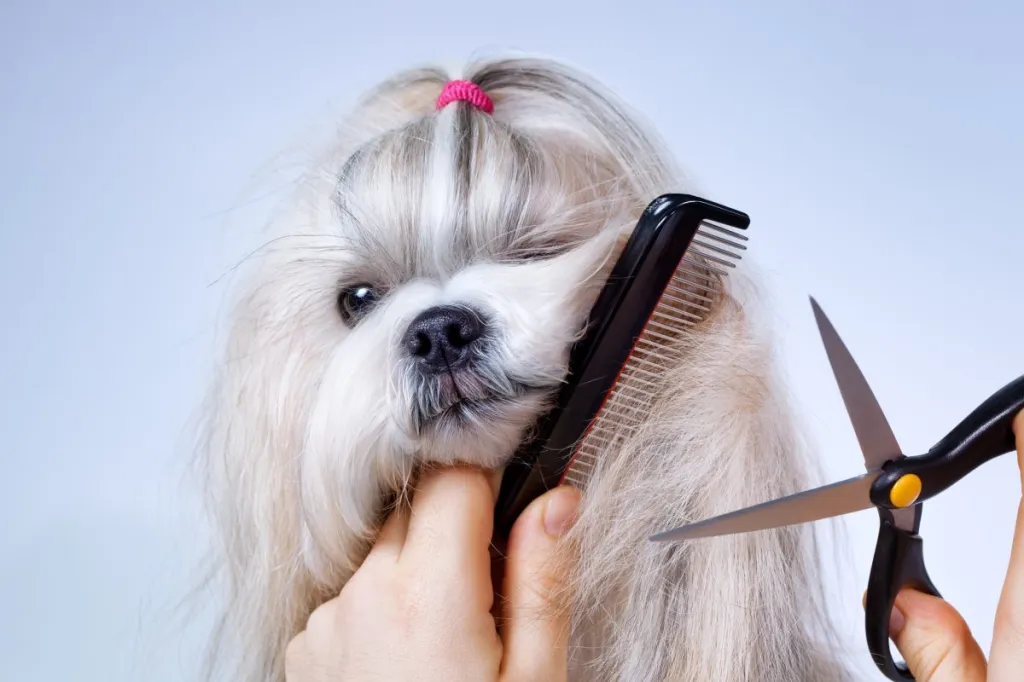
How Often Should You Bathe Your Shih Tzu?
Bathing your Shih Tzu is an important part of their grooming routine, but it’s essential to strike the right balance. Overbathing can strip the coat of natural oils, leading to dry skin and irritation, while under-bathing can result in a dirty, greasy coat that may become a breeding ground for bacteria. Generally, bathing your Shih Tzu every three to four weeks is recommended, though this can vary depending on their lifestyle and coat condition. Shih Tzus that spend a lot of time outdoors or have longer coats may require more frequent baths.
Choosing the Right Shampoo and Conditioner
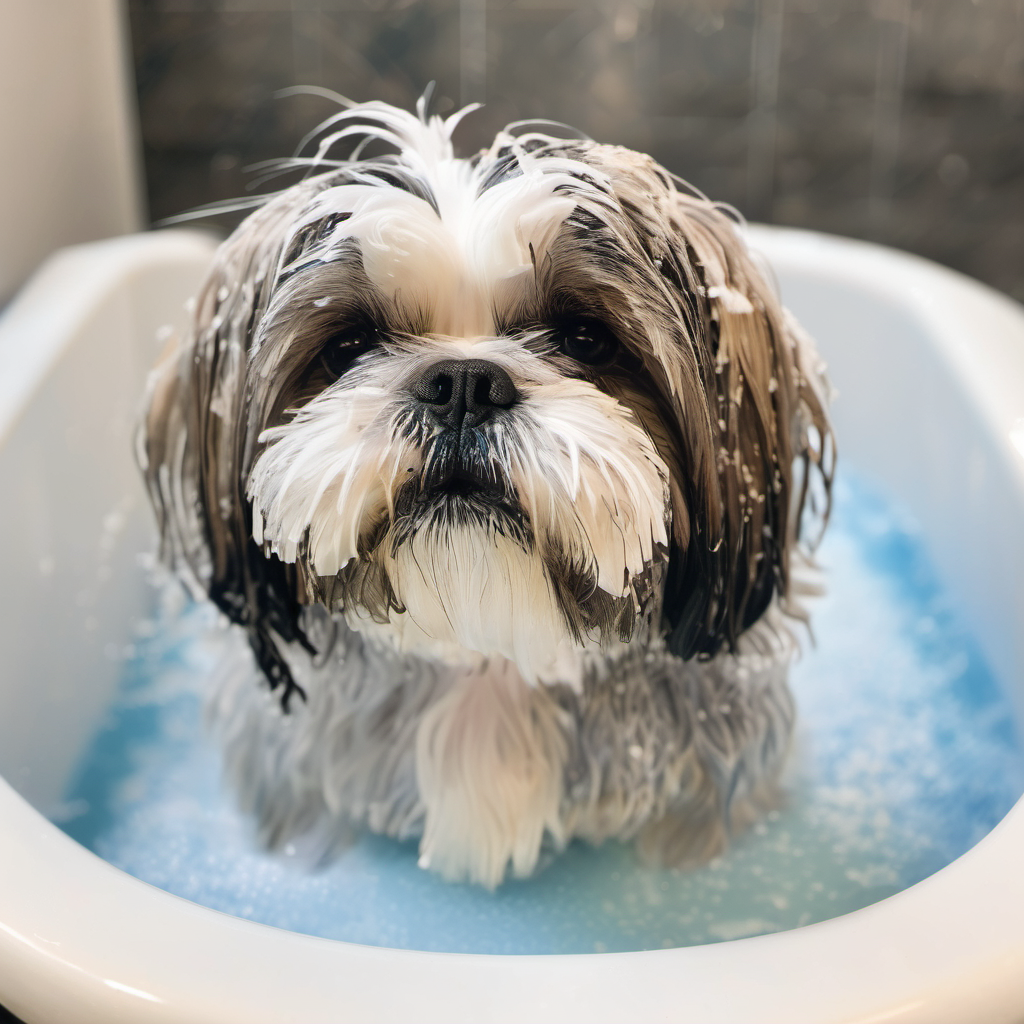
Selecting the right shampoo and conditioner is crucial for maintaining your Shih Tzu’s coat and skin health. Look for products specifically formulated for dogs, as human shampoos can be too harsh and may cause skin irritation. For Shih Tzus with sensitive skin or allergies, hypoallergenic or medicated shampoos may be necessary. Conditioning the coat after shampooing is also important to keep the hair soft, manageable, and free of tangles. Always rinse thoroughly to remove all product residue, as leftover shampoo or conditioner can cause skin irritation.
The Bathing Process: Tips for a Stress-Free Experience
Bathing your Shih Tzu can be a stressful experience for both you and your dog if not done correctly. To ensure a smooth process, start by brushing your Shih Tzu’s coat to remove any tangles or mats before getting them wet. Use lukewarm water and wet the coat thoroughly before applying shampoo. Massage the shampoo into the coat and skin, paying special attention to areas that tend to get dirty, such as the paws, underbelly, and around the face. Rinse thoroughly and apply conditioner if needed. After rinsing, towel-dry your Shih Tzu and, if necessary, use a blow dryer on a low setting to ensure the coat is completely dry. This process not only cleanses your Shih Tzu’s coat but also helps to keep their skin healthy and free of irritants.
Trimming and Clipping: Maintaining a Manageable and Healthy Coat
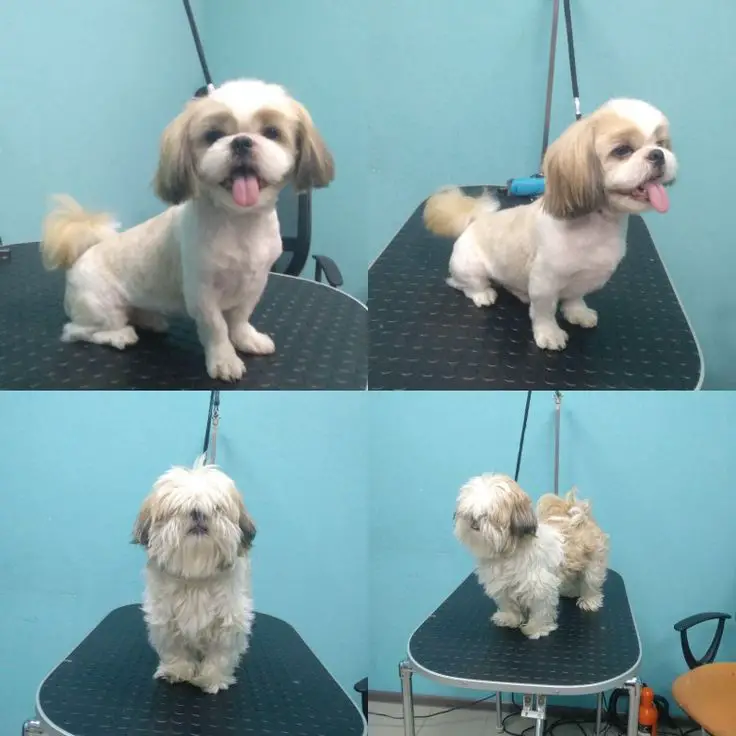
When and How to Trim Your Shih Tzu’s Coat
Trimming your Shih Tzu’s coat is essential for keeping it manageable and preventing matting, especially if you prefer a longer coat style. Regular trims every six to eight weeks are recommended to maintain the desired length and prevent the coat from becoming too long and unmanageable. When trimming, use high-quality grooming scissors and clippers designed for dog grooming. Focus on trimming the areas around the eyes, ears, paws, and sanitary areas, as these are prone to becoming dirty and matted.
The Importance of Professional Grooming
While regular at-home grooming is important, professional grooming is also essential for maintaining your Shih Tzu’s coat and overall health. Professional groomers have the tools and expertise to perform tasks such as coat clipping, nail trimming, and ear cleaning, which can be challenging for pet owners to do at home. Regular visits to a professional groomer can help keep your Shih Tzu’s coat in optimal condition and ensure that any grooming-related health issues are addressed promptly.
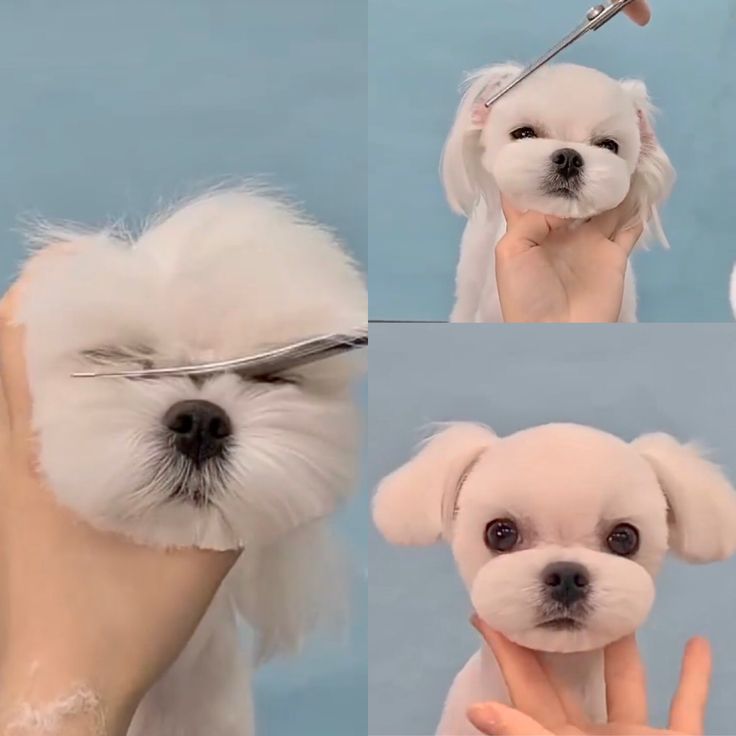
Clipping the Coat: Choosing the Right Style
Clipping your Shih Tzu’s coat can make maintenance easier, especially during warmer months when a shorter coat can help keep your dog cool and comfortable. The “puppy cut” is a popular style for Shih Tzus, where the coat is clipped short all over, giving a cute and manageable look. Another option is the “teddy bear cut,” which leaves the coat slightly longer for a fluffier appearance. When choosing a coat style, consider your Shih Tzu’s lifestyle, the climate, and how much time you can dedicate to grooming. A well-clipped coat not only looks great but also reduces the risk of matting and skin issues.
Nail Care: A Crucial Aspect of Shih Tzu Grooming
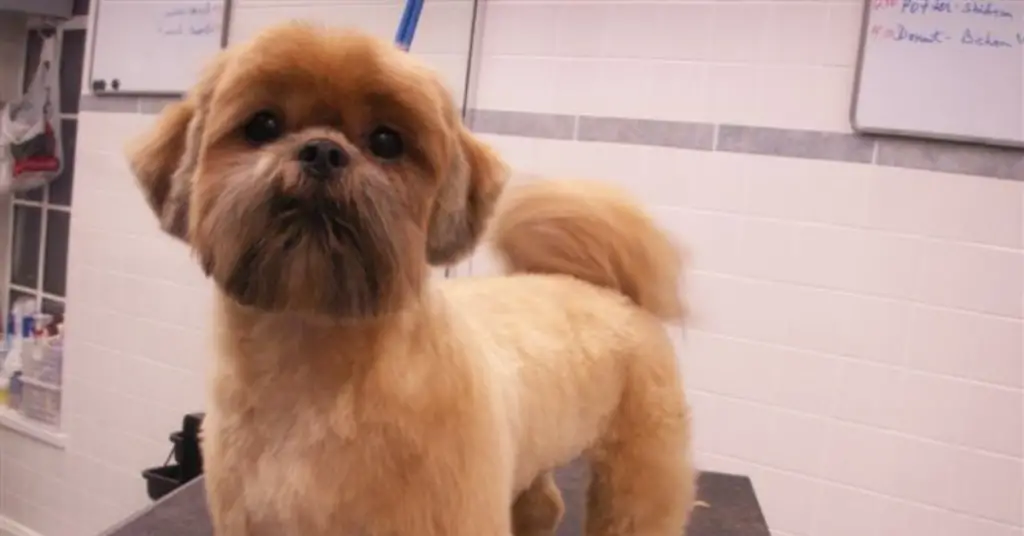
The Importance of Regular Nail Trimming
Nail care is an often-overlooked aspect of grooming that plays a vital role in your Shih Tzu’s health and comfort. Overgrown nails can cause discomfort, pain, and even lead to joint issues if left untrimmed. Regular nail trimming helps prevent these problems and ensures that your Shih Tzu can walk comfortably. The frequency of nail trimming depends on how quickly your Shih Tzu’s nails grow and the amount of wear they receive through daily activities. Generally, trimming every three to four weeks is sufficient to keep the nails at a healthy length.
How to Safely Trim Your Shih Tzu’s Nails
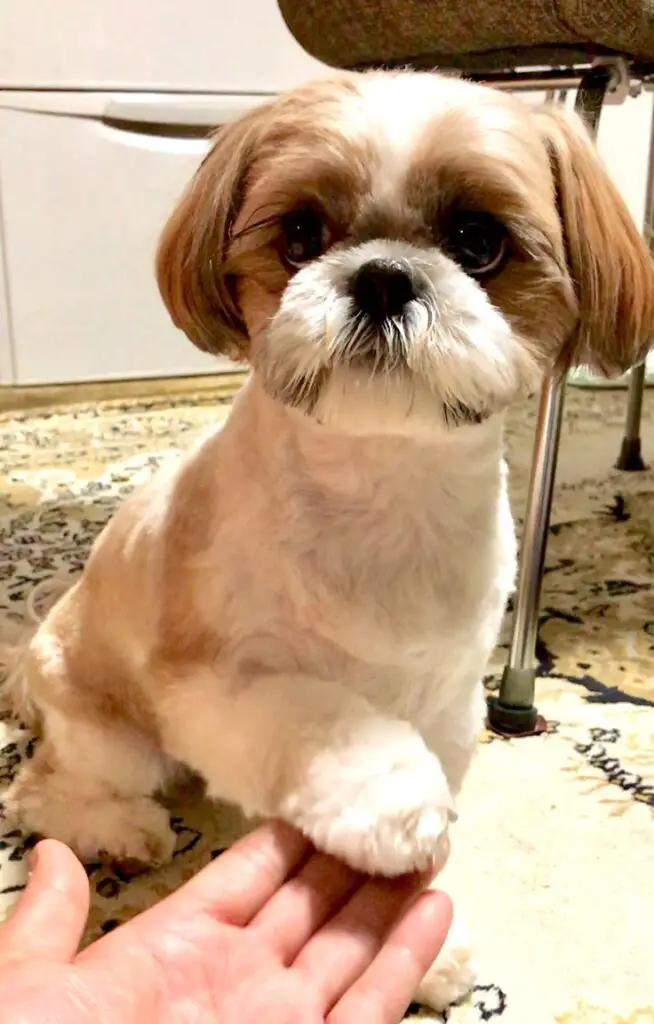
Trimming your Shih Tzu’s nails can be a daunting task, especially if your dog is anxious or uncooperative. To ensure a safe and stress-free experience, start by using a pair of high-quality dog nail clippers or a nail grinder designed for pets. Gently hold your Shih Tzu’s paw and trim a small portion of the nail, being careful to avoid the quick—the sensitive area within the nail that contains blood vessels and nerves. If you’re unsure where the quick is located, trim the nails in small increments to avoid cutting too close. If you’re uncomfortable trimming your Shih Tzu’s nails yourself, consider seeking help from a professional groomer or veterinarian.
Dealing with Nail-Related Issues
In some cases, Shih Tzus may experience nail-related issues, such as split or broken nails, which can be painful and lead to infections. If you notice any abnormalities in your Shih Tzu’s nails, such as discoloration, swelling, or bleeding, it’s important to seek veterinary attention promptly. Regular nail care and monitoring can help prevent these issues and ensure that your Shih Tzu remains comfortable and healthy.
Ear and Eye Care: Preventing Infections and Irritations
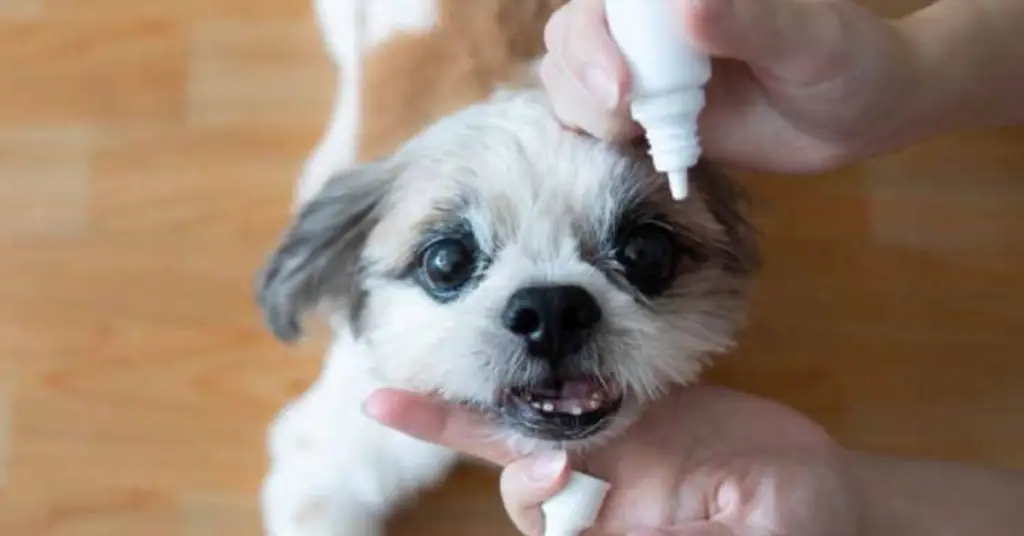
The Importance of Regular Ear Cleaning
Shih Tzus are prone to ear infections due to their floppy ears, which can trap moisture and debris, creating an environment for bacteria and yeast to thrive. Regular ear cleaning is essential for preventing infections and ensuring that your Shih Tzu’s ears remain healthy. Use a veterinarian-recommended ear cleaner and gently wipe the inside of your Shih Tzu’s ears with a cotton ball or soft cloth. Avoid using cotton swabs, as they can push debris further into the ear canal and cause damage. If your Shih Tzu is prone to ear infections, consider incorporating regular ear cleaning into your grooming routine.
Monitoring for Signs of Ear Infections
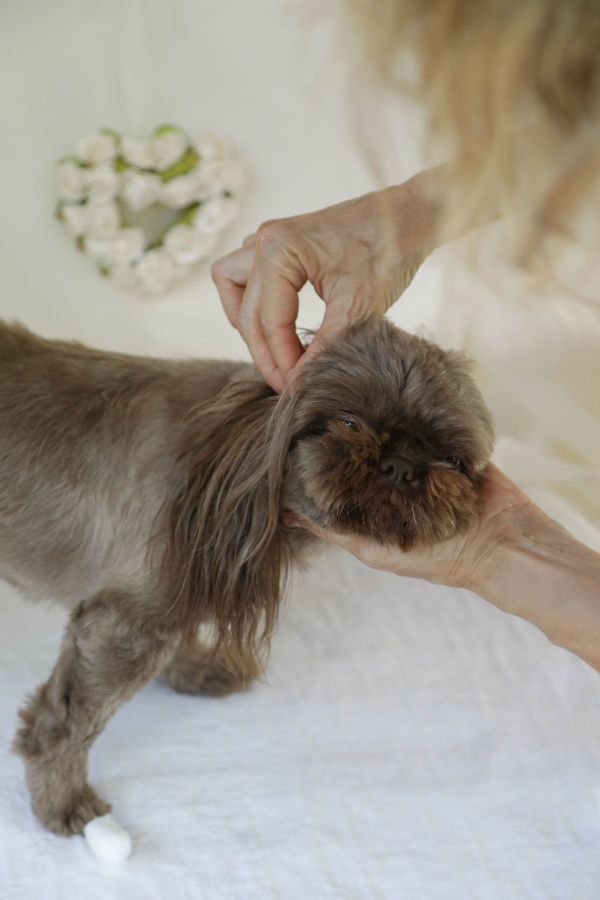
It’s important to monitor your Shih Tzu’s ears for any signs of infection, such as redness, swelling, a foul odor, or excessive scratching. If you notice any of these symptoms, consult your veterinarian for an evaluation and appropriate treatment. Catching ear infections early can prevent them from becoming more serious and ensure that your Shih Tzu remains comfortable.
Eye Care: Preventing Tear Stains and Irritations
Shih Tzus are also prone to tear stains, which are the reddish-brown marks that can develop around the eyes due to excessive tearing. Tear stains can be caused by a variety of factors, including genetics, allergies, and eye irritations. Regularly cleaning the area around your Shih Tzu’s eyes with a damp cloth or a tear stain remover can help reduce the appearance of stains and prevent irritation. It’s also important to monitor your Shih Tzu’s eyes for any signs of infection or abnormalities, such as redness, swelling, or discharge, and seek veterinary attention if necessary.
Dental Care: The Connection Between Grooming and Oral Health
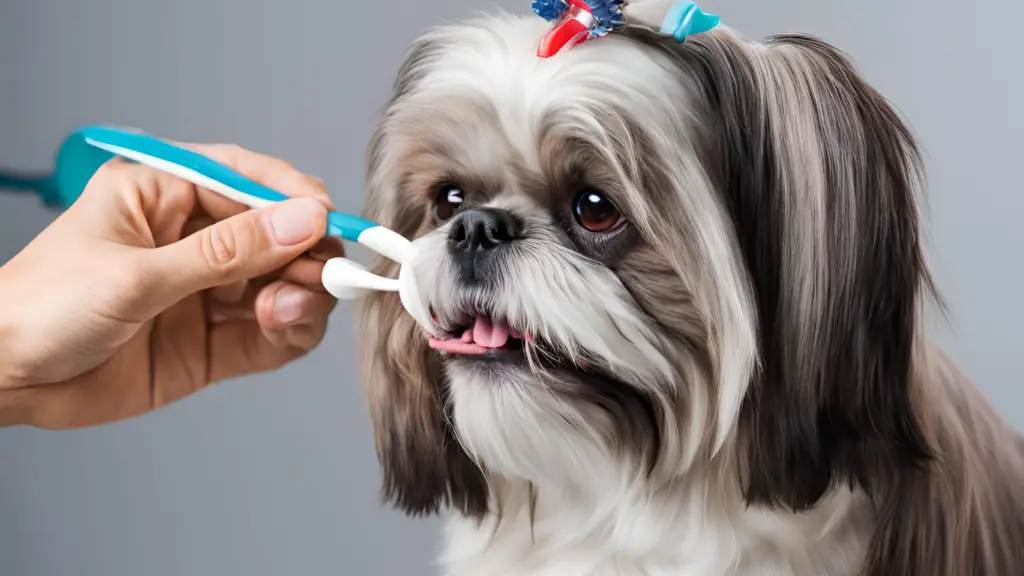
The Importance of Regular Teeth Brushing
Dental care is a critical aspect of grooming that directly impacts your Shih Tzu’s overall health. Poor oral hygiene can lead to a range of health issues, including gum disease, tooth decay, and even systemic infections that can affect the heart, kidneys, and liver. Regular teeth brushing is essential for preventing these issues and maintaining your Shih Tzu’s oral health. Ideally, you should brush your Shih Tzu’s teeth daily, using a dog-specific toothbrush and toothpaste. If daily brushing is not possible, aim for at least three to four times a week to remove plaque and prevent tartar buildup.
Addressing Bad Breath and Dental Issues
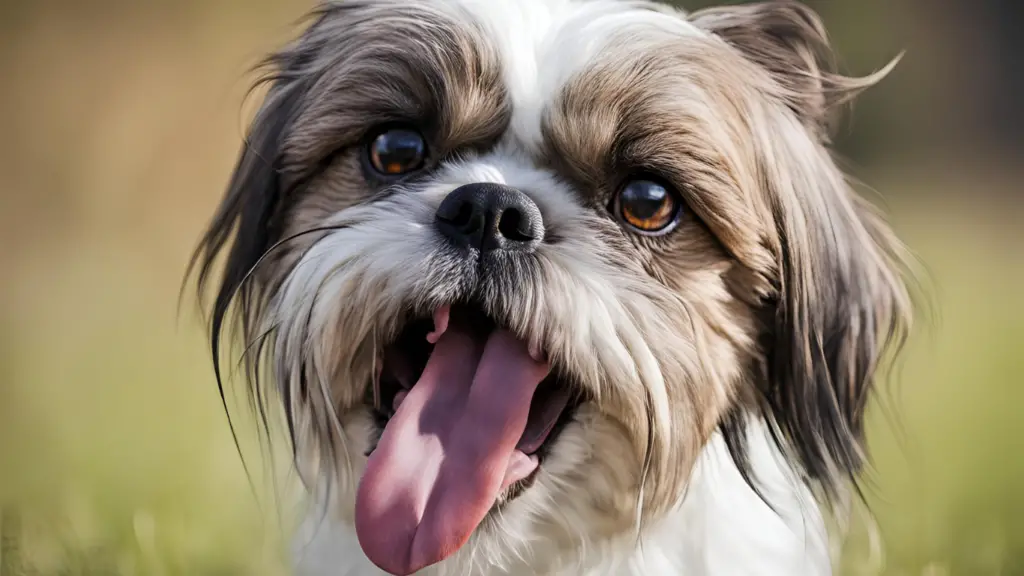
Bad breath in dogs is often a sign of underlying dental issues, such as gum disease or tooth decay. If you notice that your Shih Tzu’s breath has a foul odor, it’s important to address the issue promptly. In addition to regular teeth brushing, provide your Shih Tzu with dental chews or toys designed to promote oral health. These products can help remove plaque and keep your dog’s teeth clean between brushing sessions. If your Shih Tzu shows signs of dental problems, such as difficulty eating, swollen gums, or loose teeth, consult your veterinarian for a dental examination and treatment.
Professional Dental Cleanings
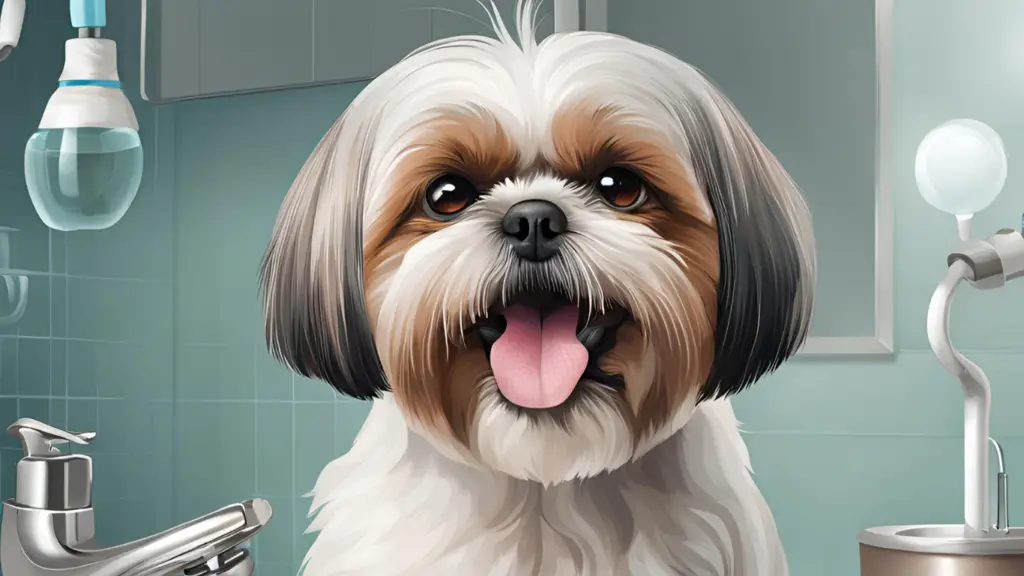
In addition to at-home dental care, regular professional dental cleanings are important for maintaining your Shih Tzu’s oral health. During a professional cleaning, your veterinarian will remove plaque and tartar buildup, clean below the gumline, and polish your dog’s teeth. These cleanings are usually performed under anesthesia to ensure that your dog is comfortable and that the cleaning is thorough. Regular professional cleanings, combined with consistent at-home care, can help prevent dental disease and ensure that your Shih Tzu maintains a healthy mouth throughout their life.
The Psychological Benefits of Grooming: Strengthening the Human-Dog Bond
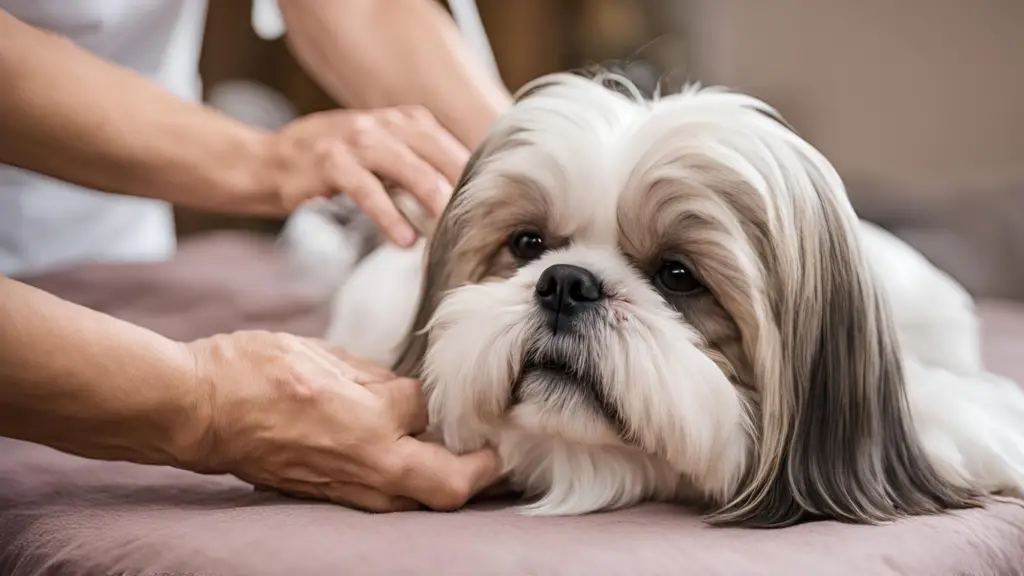
Grooming as a Bonding Activity
Grooming is not only beneficial for your Shih Tzu’s physical health but also plays a crucial role in strengthening the bond between you and your dog. Regular grooming sessions provide an opportunity for one-on-one interaction, allowing you to build trust and deepen your connection with your Shih Tzu. Many dogs find the gentle touch and attention they receive during grooming to be comforting and reassuring, which can help reduce stress and anxiety.
Reducing Anxiety Through Grooming

For some Shih Tzus, grooming can be a source of anxiety, especially if they are not accustomed to being handled or have had negative grooming experiences in the past. By approaching grooming in a calm and patient manner, you can help reduce your dog’s anxiety and make the experience more enjoyable for both of you. Gradually introducing your Shih Tzu to grooming tools and techniques, using positive reinforcement, and providing plenty of praise and treats can help your dog associate grooming with positive experiences.
Grooming and Behavioral Health
Regular grooming can also have positive effects on your Shih Tzu’s behavioral health. A well-groomed dog is more likely to feel comfortable and confident, which can translate into better behavior overall. Dogs that are uncomfortable due to matted fur, overgrown nails, or dirty ears may exhibit signs of irritability or discomfort, which can affect their behavior. By keeping your Shih Tzu well-groomed, you can help ensure that they feel their best, both physically and emotionally.
The Role of Grooming in Preventative Health Care
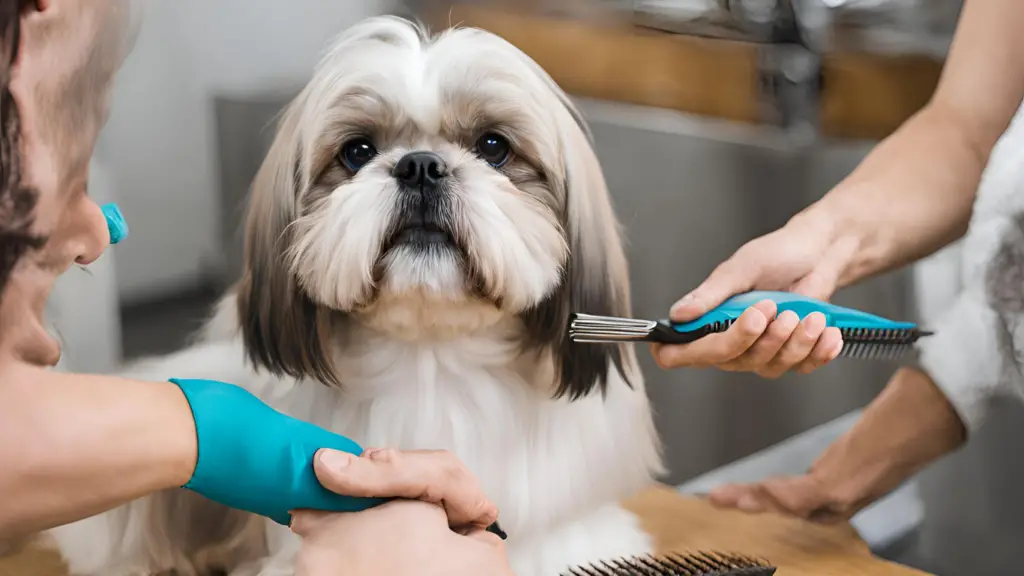
Early Detection of Health Issues
One of the most significant benefits of regular grooming is the opportunity it provides for early detection of health issues. During grooming sessions, you can closely examine your Shih Tzu’s skin, coat, ears, eyes, teeth, and nails for any signs of abnormalities or health concerns. Early detection of issues such as lumps, infections, or skin problems can lead to prompt treatment and better outcomes for your dog.
The Connection Between Grooming and Overall Well-being
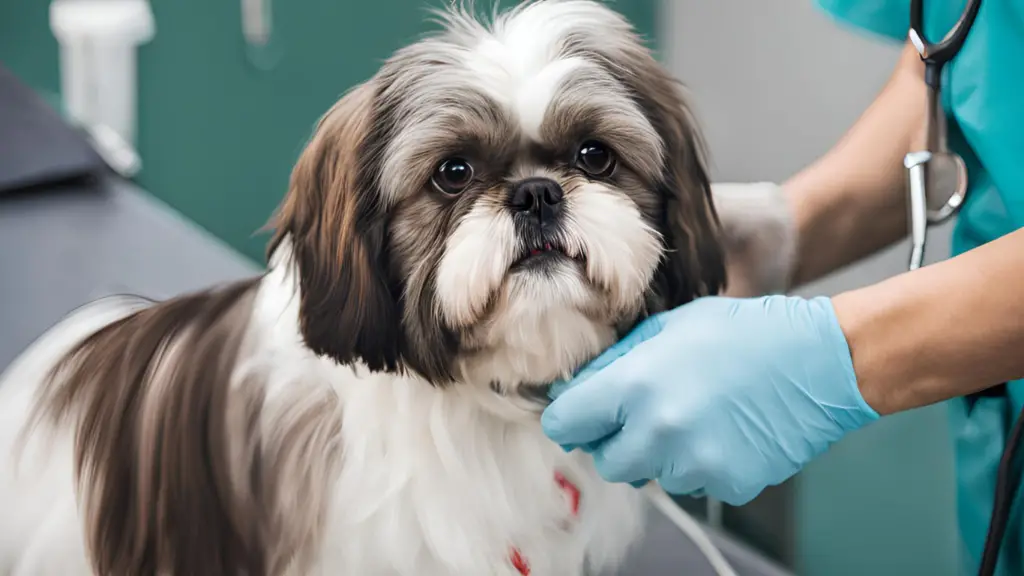
Grooming is an integral part of maintaining your Shih Tzu’s overall well-being. A clean, well-groomed dog is more likely to be active, comfortable, and happy, which can contribute to a higher quality of life. Regular grooming also helps prevent common health issues, such as skin infections, ear infections, and dental disease, which can have a significant impact on your Shih Tzu’s health if left untreated. By incorporating grooming into your dog’s regular care routine, you can help ensure that they remain healthy, happy, and comfortable throughout their life.
Partnering with Your Veterinarian
Your veterinarian can be a valuable partner in maintaining your Shih Tzu’s grooming and overall health. Regular veterinary check-ups provide an opportunity to discuss your dog’s grooming needs and address any health concerns that may arise. Your veterinarian can also recommend specific grooming products or techniques based on your Shih Tzu’s individual needs and health conditions. By working closely with your veterinarian, you can create a comprehensive grooming and health care plan that meets all of your Shih Tzu’s needs.
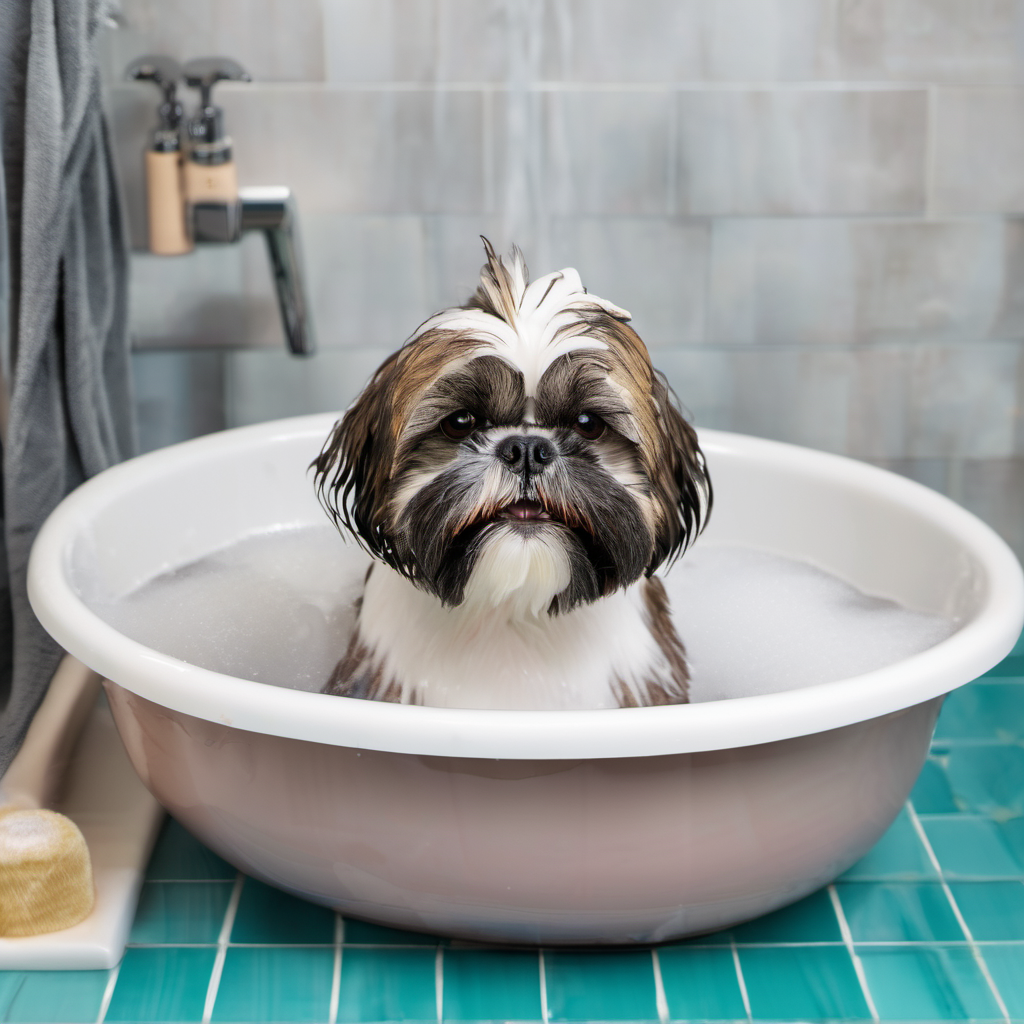
Conclusion: Grooming as a Pillar of Shih Tzu Health
Grooming is more than just a way to keep your Shih Tzu looking their best—it’s a critical component of their overall health and well-being. From maintaining a healthy coat and skin to preventing dental and ear infections, regular grooming plays a vital role in keeping your Shih Tzu healthy, comfortable, and happy. Additionally, grooming provides an opportunity for early detection of health issues and strengthens the bond between you and your dog. By making grooming a priority in your Shih Tzu’s care routine, you can help ensure that they live a long, healthy, and fulfilling life. Remember, a well-groomed Shih Tzu is a healthy Shih Tzu, and the time and effort you invest in grooming will pay off in the form of a happy, healthy, and well-cared-for companion.


